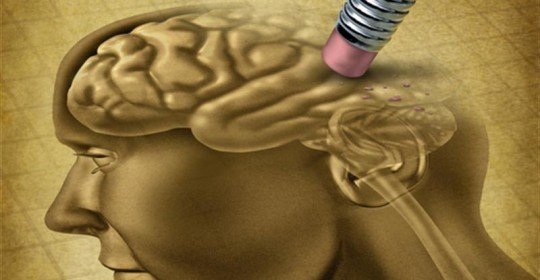
A problem that occurs as a result of memory impairment, which is one of the most important functions of our brain and causes limitations in one’s activities, is called forgetfulness. Since it may be the first sign of dementia in the elderly, it should be taken especially seriously. It is normal for people to have a moderate forgetfulness with aging, no need to worry, this condition called “age-related forgetfulness” does not cause any disease unless it progresses. However, such patients need to be followed up periodically, because this forgetfulness, if it progresses, can be a sign of serious diseases.
The reason for forgetfulness seen at younger ages is often psychiatric problems. Today, the stress brought by the city and working life, depression causes forgetfulness by impairing the concentration and control of brain functions. In addition, some vitamin deficiencies, goiter diseases, brain tumors, blockages in the cerebral vessels, cerebral hemorrhages, MS and many other diseases also show themselves with forgetfulness. We must not forget that an ongoing forgetfulness deserves medical investigation.
In which cases of forgetfulness in old age should be worried?
Any forgetfulness in old age should be seen and evaluated by a neurosurgeon, neurologist, psychiatrist and geriatrician.
Forgetfulness should be taken more seriously in people with progressively increasing forgetfulness, inability to find a way other than forgetfulness, inability to do arithmetic, introversion, having vivid dreams, having Alzheimer’s disease in their family, having a stroke, having a serious accident. A more careful and detailed examination is required as existing diseases may underlie the forgetfulness in people with a known neurological disease (such as cerebrovascular disease, Multiple Sclerosis, epilepsy) or other medical diseases (such as diabetes, heart attack, any cancer).
How is forgetfulness evaluated?
First of all, the physician listens to the complaints of the person, takes the whole history, and after talking with a relative who knows the patient well, he understands the effect of forgetfulness in daily life. The relative who knows the patient best does not always have to be a member of the family. In some cases, this person may be someone else, such as a neighbor, a caregiver, a local grocer.
Then, the type and severity of forgetfulness are measured with a set of tests called “neuropsychological tests”, which are made face-to-face with the person to ask questions, make drawings, and some of them press keys on the computer. After these tests, if the physician deems it necessary, he may request additional tests such as brain tomography, EEG, lumbar puncture, SPECT, PET, blood-urine tests. Brain MRI examination is particularly effective in excluding other rare causes that may lead to forgetfulness. In some cases, simple vitamin deficiencies such as B12 and folic acid can cause forgetfulness in diseases such as goiter, so blood tests for these should also be performed. Together with all the examinations, the physician makes a clinical diagnosis.
We should not forget that forgetfulness is also at the forefront in patients with Normal Pressure Hydrocephalus, and we should definitely seek the opinion of a neurosurgeon in order to avoid regrets later in terms of differential diagnosis.
Alzheimer’s Disease and Forgetfulness
Alzheimer’s disease is the most frequently observed disorder among dementia diseases and its first symptom is forgetfulness. Over time, this forgetfulness is accompanied by the inability to find direction, dressing, urinary incontinence and various behavioral disorders.
Alzheimer’s disease is caused by the death of brain cells earlier than programmed, the cause of which has not been fully elucidated yet, brain cell death occurs in every person with age, but this process is very rapid and early in Alzheimer’s disease. With cell death, the brain gradually shrinks. Alzheimer’s disease is not a contagious disease or cancer.
The most important risk factor for this disease is advanced age. Today, it is increasing rapidly all over the world, and it is frequently seen in people aged 65 and over. The incidence of Alzheimer’s disease increases with age (8 out of 100 people over the age of 65 have Alzheimer’s disease). Aging is inevitable. Today, it is thought that there are around 230 thousand Alzheimer’s patients in Turkey and this number will unfortunately increase in the future. As a country where the young population will gradually age, we can say that this disease will become the most important health problem after 30-40 years in Turkey. EARLY DIAGNOSIS of the disease is very important because current treatments are effective in the early period and in order to take various preventive measures.
The most important risk factors for the disease are age (non-modifiable factor), depression in the past (modifiable factor), vascular diseases (such as heart attack, high blood pressure, high cholesterol, etc.), modifiable factors, severe head trauma in the past, low education level.
What should we do to be protected?
We should take care of our general health.
We should age healthily.
Since heart disease risks such as high blood pressure and high cholesterol are also risk factors for dementia, we should have them taken under control.
We should do mental activity. We have to solve puzzles, water textures, read books.
We should walk regularly and keep our bodies fit.
We should eat regularly. We should consume liquid oils instead of solid fats, we should eat more green vegetable foods.
Especially if there are psychiatric diseases such as depression, we should be treated.
We should not consume alcohol excessively.
We should not smoke.
When there is forgetfulness, we should not say “it is due to old age” and consult a doctor.
We should not forget that forgetfulness is also at the forefront in patients with Normal Pressure Hydrocephalus, and we should definitely seek the opinion of a neurosurgeon in order to avoid regrets later in terms of differential diagnosis.

